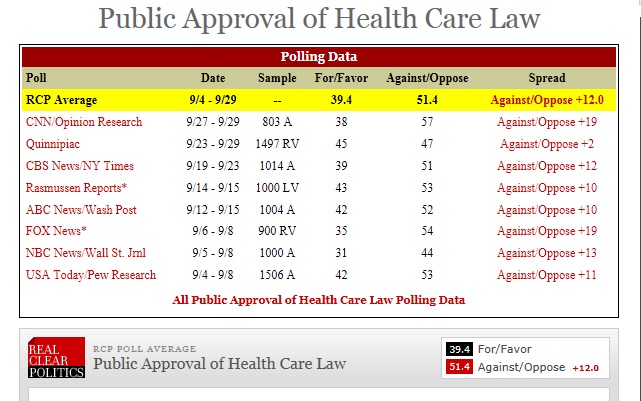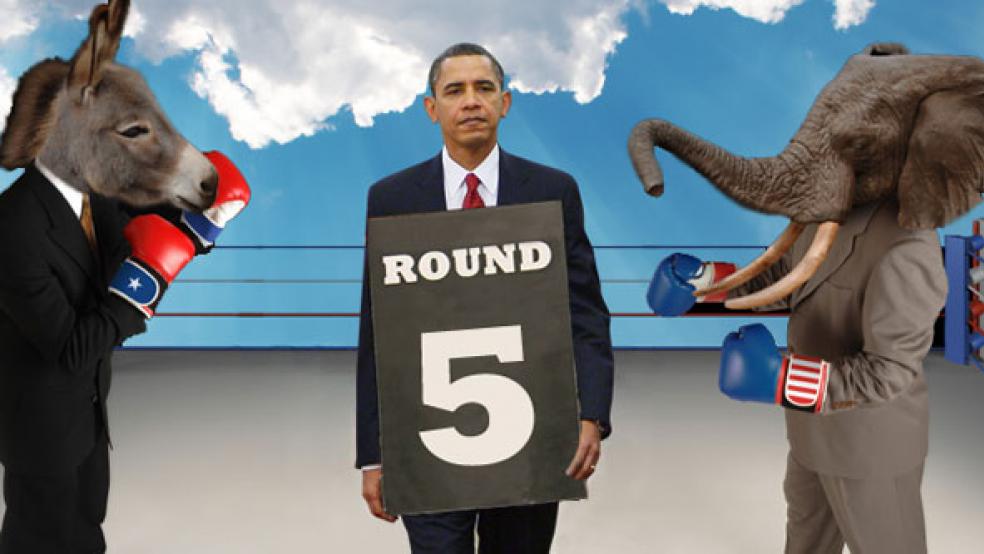People regularly lament the supposed decline in American political discourse and the rise of rabid  partisanship, just as parents mourn the demise of good music and affordable seats at a ballgame. In the case of politics, that pessimism has ignores a rich American history of scurrilous personal attacks, party-conducted corruption, and political extremism that would curl eyebrows if conducted today. A brief look at the presidential election of 1800s, for instance, would cure the pessimists in short order.
partisanship, just as parents mourn the demise of good music and affordable seats at a ballgame. In the case of politics, that pessimism has ignores a rich American history of scurrilous personal attacks, party-conducted corruption, and political extremism that would curl eyebrows if conducted today. A brief look at the presidential election of 1800s, for instance, would cure the pessimists in short order.
No, the real scandal and decline of politics in this era isn’t an increase of rabid partisanship, mudslinging, or corruption, but incompetence. After watching both Republicans and Democrats fumble away slam dunks in public relations opportunities, I’m left with Casey Stengel’s timeless question: “Can’t anyone here play this game?”
RELATED: OBAMA SNOOKERS GOP INTO GOVERNMENT SHUTDOWN
Let’s start with Republicans in Congress. With fiscal year 2014 starting this past Monday, the House and Senate GOP ended up on different pages as to how to exploit the need for a continuing resolution and a debt-ceiling increase later this month to force a retreat on Obamacare. Speaker John Boehner seemed inclined to take an incremental strategy, as 40 previous efforts to repeal the Affordable Care Act had all run into the brick wall of the Democrat-controlled Senate.

With public opposition to Obamacare gaining as the rollout date approached, and with news of problems on the horizon in the federal and state exchanges already making headlines, the GOP had an opportunity to score points by forcing Democrats to vote against a delay, which Republicans could later use if the system broke down.
Senators Ted Cruz and Mike Lee wanted a more aggressive attack to defund the bill and baited House Republicans into switching tactics. Even that ended up working out well, except for an eruption of internecine GOP attacks that distracted attention away from Obamacare and onto a supposed GOP civil war.
RELATED: WHY DIVORCE ATTORNEYS WILL LOVE OBAMACARE
Cruz provided a rescue with a 21-hour filibuster that forced attention back on the bill, while still ending up allowing a vote on the strategy. Republicans even had an opportunity to force Democrats to vote against a delay, essentially getting both strategies in place before the rollout began.
Unfortunately, the GOP then stepped all over the inevitable crash. Rather than push through a short-term, clean CR to keep the media focused on the launch of the exchanges, time ran out in a wild session on Capitol Hill Monday night. While the media did cover the disaster of Obamacare’s official start date and the collapse of the exchanges, the focus remained on Congressional gridlock and dysfunction, with Republicans taking most of the blame. This might have otherwise been the single best day for Obamacare opposition that the Republicans will ever have, and the shutdown overshadowed it.
That, however, pales in comparison to the debacle of the shutdown at the White House.
There are few opportunities better than a Congressional impasse to raise the stature of the President. Americans are usually inclined to dislike Congress anyway, consistently rating them far below the executive mainly for doing what Congress is supposed to do – debate policy and spend time acting in a deliberate rather than hasty manner. In the event of a budget impasse, any White House can seize the moral high ground simply by speaking in reasonable, soothing, and responsible terms.
What did Barack Obama and his allies do? Obama claimed that Republican demands for negotiations on the debt ceiling amounted to “extortion” – despite the fact that Obama voted to oppose such an increase in 2006 as Senator. Senate Majority Leader Harry Reid refused to negotiate at all on continuing resolutions passed by the House, insisting that Republicans were holding “a gun to our head.”
Obama communications adviser Dan Pfeiffer – who should be helping to craft a strategic message to raise his boss’ leadership profile – compared House Republicans to terrorists on CNN’s The Lead, telling Jake Tapper, “What we’re not for is negotiating with people with a bomb strapped to their chest.” This came, it should be noted, on the same day in which Pfeiffer’s boss called Iranian president Hassan Rouhani to negotiate on nuclear weapons. The State Department considers Iran one of the chief state sponsors of terrorists.
RELATED: HOW LONG WILL THE SHUTDOWN LAST? 3 MAJOR SIGNS
Next came the actual shutdown. Again, this is where the President has a large degree of opportunity to craft a helpful narrative. By law, certain “essential” functions of the federal government have to receive funding to remain open, and the executive branch gets to decide what qualifies as “essential.” The idea is to make the public feel the pain in order to force the opponents to retreat on their demands. Bill Clinton used that power to his advantage in the 1995-6 shutdowns, much to the chagrin of Republicans at the time.
The White House decided to pursue the time-tested “Washington Monument strategy” of inconveniencing tourists for political gain, and promptly ended up with egg on their faces. One of those monuments turned out to be the World War II Memorial on the Mall in Washington, which has no turnstiles or special admission access; it’s open 24 hours a day simply by walking into it.
The first day of the shutdown, though, the National Parks Service tried closing the memorial down to a group of World War II veterans who had traveled to Washington to see it, claiming that the shutdown cut off access to it. Rep. Steven Palazzo (R-MS), who accompanied the veterans, asked the White House to back off, only to get the brush-off himself. Instead, Palazzo took down the barricade himself to give the veterans access to the memorial honoring their own service in a park that is open to everyone anyway.
Did the White House learn a lesson from this PR debacle? Apparently not. As Elizabeth Scalia points out, the President could have met veterans at the memorial the next day to express his appreciation for their service and toured the memorial with them. That would have given Obama some much-needed positive coverage and an opportunity to pressure Republicans into retreat without having to enter negotiations himself.
Instead, the National Parks Service spent Day 2 of its supposed shutdown by hoisting more barricades with forklifts to surround the memorial before more octogenarian and nonagenarian veterans could arrive. That took seven NPS security personnel, which Washington Examiner reporter Charlie Spiering noted was two more people than the Obama administration committed to security for the consulate in Benghazi a year ago.
Instead of a photo op for President Obama, GOP Reps. Michele Bachmann and John Carter arrived on the scene to breach the barricades yet again. NPS at first tried claiming to CNN that they couldn’t spare anyone to react in case CPR was needed, but the widespread images of the bulldozer, barricades, and security personnel hanging signs on them finally forced NPS to invite other members of the Greatest Generation to visit the memorial to their dedication and service.
It came as no surprise at the end of two days of relentlessly bad public relations that Obama ended up blinking first on the shutdown. After spending weeks insisting that he wouldn’t negotiate with Republicans, the President finally decided to host a summit at the White House with Congressional leadership in an effort to move the day’s narrative away from Obamacare exchange crashes and harassment of World War II veterans.
Does this mean that competence and rational thought has returned to Washington? One can only hope, but the performance of the stakeholders in this debate can’t give anyone much confidence in the potential outcomes of this impasse. In fact, it’s an object lesson why we should push for government policies that intervene less in markets, not more. Otherwise, the follies of incompetence promise to be a regular feature not just in Washington, but also in many aspects of our own lives.
Casey Stengel would be amazed – and as was the case in 1962, not in a good way. As he said about his team in that first season fifty-one years ago, "The Mets have shown me more ways to lose than I knew existed." We know the feeling.






